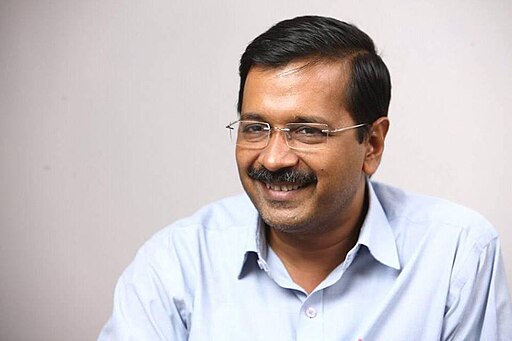Delhi Chief Minister faces scrutiny as legal battle intensifies over bail in excise policy case
In a significant development, the Central Bureau of Investigation (CBI) interrogated Delhi Chief Minister Arvind Kejriwal at Tihar jail, recording his statement in connection with the excise policy case. This move comes just ahead of the Supreme Court’s scheduled hearing on Kejriwal’s plea against the stay on his bail, which was granted by a trial court.
Arvind Kejriwal, a prominent figure in Indian politics known for his role as the leader of the Aam Aadmi Party (AAP), has been embroiled in legal battles surrounding allegations related to the excise policy. The case has seen rapid developments, with the Delhi High Court recently staying the trial court’s decision to grant bail to Kejriwal, citing concerns over the court’s assessment of evidence presented by the Enforcement Directorate (ED).
Embed from Getty ImagesJustice Sudhir Kumar Jain of the Delhi High Court’s vacation bench criticized the trial court for its handling of the case, highlighting discrepancies in how the voluminous evidence was considered. This decision sparked reactions from various political quarters, with Delhi Minister Saurabh Bharadwaj labelling it as “unusual” and raising questions about judicial proceedings.
Meanwhile, ahead of the Supreme Court hearing, CBI officials indicated the likelihood of formally arresting Kejriwal, prompting accusations from the AAP of political conspiracy orchestrated by the ruling BJP-led government. AAP MP Sanjay Singh condemned the alleged maneuvers, asserting widespread public support for Kejriwal and decrying what he described as vindictive actions aimed at thwarting the Chief Minister’s legal recourse.
Further complicating the situation, AAP’s legal representative, Rishikesh Kumar, accused the Modi government of manipulating legal processes to undermine Kejriwal’s defence. This sentiment was echoed by Delhi BJP President Virendraa Sachdeva, who redirected scrutiny towards the Congress party, asserting that the case against Kejriwal was originally initiated by Congress, thereby questioning the motives behind ongoing investigations.
Arvind Kejriwal’s legal saga began with his arrest by the ED on charges related to the excise policy on March 21. Subsequent legal maneuvers saw him granted interim bail by the Supreme Court on May 10 to engage in electoral campaigning, with a subsequent directive to surrender by June 2. The recent grant of regular bail by the trial court on June 20 was swiftly challenged and stayed by the Delhi High Court on June 21, signalling ongoing legal volatility in Kejriwal’s case.
Analysis:
Political Perspective: Politically, Kejriwal’s legal entanglement is viewed through the lens of partisan battles between AAP and its adversaries, notably the BJP and Congress. The accusations of political conspiracy underscore deep-rooted rivalries and the high-stakes nature of Indian state politics, where legal battles often intertwine with electoral strategies and public perception.
Social Perspective: From a societal standpoint, Kejriwal’s case raises concerns about judicial independence and the fair application of law. The public reactions highlight broader disillusionment with perceived injustices and the politicization of legal processes, shaping public discourse on accountability and transparency within the judiciary.
Economic Perspective: Economically, uncertainties surrounding Kejriwal’s legal battles could impact governance and policy continuity in Delhi, potentially affecting investor confidence and administrative stability. The legal uncertainty adds to broader concerns about regulatory clarity and its implications for economic planning and development initiatives in the region.
